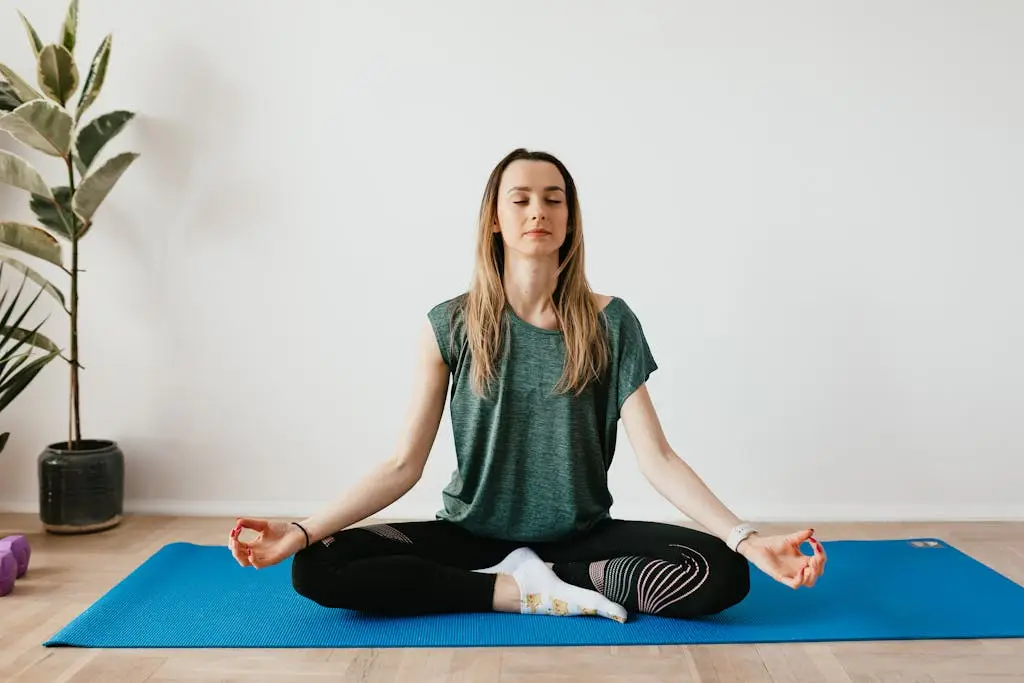Are small, daily choices secretly draining your focus and calm — and is there a simple way to stop it?
Protecting your energy means making choices that keep your mind sharp, emotions stable, and body strong. It’s about daily habits that help you find peace and reduce stress.
In the United States, work stress, constant digital alerts, and no clear work-life line increase burnout risk. Studies show that small, daily habits can lower stress and improve mental health.
This article will guide you. First, we’ll cover what protecting your energy means. Then, we’ll share daily habits to try now. Next, we’ll talk about mindset and setting boundaries to stay grounded. Finally, we’ll discuss self-care for restful sleep. Each part offers steps to reduce stress and boost inner peace.
Key Takeaways
- Protecting your energy is about preserving mental, emotional, and physical resources through daily choices.
- Small, consistent habits can reduce allostatic load and improve mental clarity and emotional well-being.
- Addressing digital overload and workplace stress helps you stay grounded and avoid burnout.
- This guide offers practical routines, boundary techniques, and self-care tools you can use right away.
- Following these strategies will help you boost inner peace, sleep better, and handle challenges with more resilience.
Protecting Your Energy
Protecting your energy is about making small, everyday choices. Say no to social events that drain you. Limit time on negative online comments. Block time for deep work to avoid multitasking.
These actions help you save energy for what’s truly important.
Understanding what protecting your energy means in daily life
Doing emotional work like caring for others and managing conflicts can exhaust you. Research shows that making too many choices weakens your willpower. For those with heavy responsibilities or chronic conditions, saving energy is crucial.
It’s not just about feeling tired; it’s about survival.
How conserving energy improves mental clarity and emotional well-being
By reducing distractions and focusing on rest, your body benefits. Your cortisol levels stay lower, and your brain works better. This leads to better mood, focus, and creativity.
Simple changes in your life can lead to big improvements. You might see better productivity, mood stability, and sleep quality when you prioritize energy conservation.
Signs you’re draining your energy and why you should act now
Look out for signs like constant tiredness, irritability, and trouble focusing. These are signs you’re running low.
Red flags for burnout include insomnia, pain, and trouble bouncing back from stress. If you see these, take action fast.
Try a daily energy audit. Track your mood, sleep, and stress for a week. Use what you learn to make changes that help you conserve energy and reduce stress naturally.
Practical Daily Habits to Boost Inner Peace
Start your day with simple choices that affect how you feel. Small, repeatable practices can boost inner peace and keep reactions calm. You don’t need a long routine to see a big difference.
Gentle morning routines to set a calm tone for the day
Begin with 5–10 minutes of mindful breathing to prepare for the day. Turn off your phone’s Do Not Disturb mode and keep screens away for 30 minutes. Add gentle stretching or a short yoga flow and list 1–3 key tasks to stay focused. Apps like Headspace or Calm offer guided sessions for busy mornings.
Micro-break techniques to reduce stress naturally during work
Take micro-breaks of 30 seconds to 5 minutes every 25–90 minutes. Try box breathing (4-4-4-4), a brief walk, eye relaxation exercises, or standing stretches. These pauses improve blood flow, ease muscle tension, and reset attention, which helps reduce stress naturally and sustain productivity.
Set reminders with your calendar, the Pomodoro Technique, or wearable devices like Apple Watch or Fitbit to build this habit into your day.
Evening rituals to unwind, avoid burnout, and improve sleep quality
Start a tech curfew 60–90 minutes before bed. Add a short reflection or gratitude journal entry, a warm shower or bath, and light reading to unwind. Keep a consistent sleep schedule and a cool, dark bedroom to support healthy sleep hygiene.
When time is tight, try a five-minute wind-down, progressive muscle relaxation apps, or a guided sleep meditation to avoid burnout and stay grounded for the next day.
Mindset and Boundary Strategies to Stay Grounded
Keeping your balance starts with simple shifts in how you think and act. Use practical steps that combine mindset work with clear limits. This way, you can stay grounded and protect your energy in daily life.
How assertive boundaries protect your time and emotional reserves
Assertive boundaries are clear, respectful limits about your time, emotional labor, and availability. At work, you can set response-time expectations. You can also decline extra tasks that exceed your capacity and delegate when a task is better handled by a teammate.
Using tools like shared calendars to mark focus blocks and email auto-responders to set expectations helps. Short scripts for recurring requests also keep your focus intact. This preserves mental clarity, prevents resentment, and keeps energy consistent across the week.
Techniques for saying no gracefully without guilt
- Use brief refusals with an alternate offer: “I can’t take that on right now; I can help next week.”
- Try direct lines that shift responsibility: “I don’t have the bandwidth; here is a resource that might help.”
- Frame answers with “I” statements and keep them concise to avoid emotional over-explaining.
Practice these lines aloud or role-play with a friend to build confidence. Remember, no is a complete sentence. Saying no to some things helps you avoid burnout and say yes to priorities that matter.
Mindset shifts that foster resilience and long-term inner peace
Move from perfectionism to “good enough” standards. Treat boundaries as self-care rather than selfishness. Focus on what you can control instead of fixating on every outcome.
Use elements of cognitive behavioral therapy to question catastrophic thoughts. Apply a growth mindset when setbacks occur. Try one-minute grounding exercises during stressful moments and keep short gratitude lists to boost perspective.
Periodically reflect on whether your boundaries match your values. These small, regular practices build resilience, protect your energy, and support lasting mental clarity.

Self-Care Tools and Practices for Emotional Well-Being
Begin with simple, reliable routines that boost your emotional health. Make protecting your energy a daily habit. Use tools you can do anywhere to lower stress and build resilience. Here are three focused practices to try this week.
Meditation and breathing practices for quick mental clarity
Short, proven techniques can calm your mind in minutes. Try diaphragmatic breathing: put a hand on your belly, inhale deeply for four counts, hold for four, exhale for four, repeat five times. Box breathing is similar and great before meetings.
For a calming option, try 4-7-8 breathing or a five-minute mindfulness meditation. Use apps like Insight Timer or Headspace, follow YouTube guides, or join a local mindfulness class.
Movement and nature-based activities that lower stress naturally
Light exercise and being in nature reduce stress and boost mood. Choose easy options: a brisk 10-minute walk, tai chi in the park, gentle yoga at home, or gardening. Short stair climbs and desk stretches keep you moving and focused.
Find nearby parks, National Park Service trails, or beginner-friendly recreation programs. These activities combine movement with fresh air to naturally reduce stress and support self-care.
Journaling prompts and reflection practices to process emotions
Writing helps clear your mind, reduce worries, and uncover patterns affecting your energy. Try quick prompts: “What drained me today and why?”, “What three things restored energy for me this week?”, and “If I had more energy, what would I do differently?”
Use a five-minute evening reflection or a longer weekly entry for deeper insight. Choose a format that suits you: a secure app like Day One or a simple notebook. Gratitude lists of three items can shift your perspective and support emotional well-being over time.
- Quick breathing routine: 4-4-4 for five cycles to calm anxiety.
- 10-minute outdoor walk to boost mood and reduce cortisol.
- Evening journaling: note one drain and one restore each day.
Conclusion
Protecting your energy is about simple routines, setting boundaries, and taking care of yourself. This helps you feel more at peace and prevents burnout. Starting your day with calm routines and taking short breaks can improve your focus.
These habits also help you stay emotionally balanced, even when things get tough. Try these steps for a week to see a difference:
- Do a one-week energy audit to find what drains you.
- Choose one morning and one evening routine to try.
- Use a breathing technique during work breaks.
- Write a script for setting boundaries and use it once.
- Schedule two times for nature or movement.
Keep track of how you feel for two weeks. This will show you how your mental clarity and emotional well-being improve. Seeing progress helps you keep going and make better choices.
Building energy protection is a skill that grows with small, consistent actions. These actions lead to lasting resilience and a deeper sense of peace.
FAQ
What does “protecting your energy” actually mean?
Protecting your energy means making choices that keep your mind sharp, emotions stable, and body strong. It’s about avoiding draining people and situations. It also means saving your energy for rest and keeping your mind clear to avoid burnout.
Why is protecting your energy important in the United States right now?
High stress at work, constant digital distractions, and blurred lines between work and life can harm your health. Small habits that reduce interruptions and emotional strain can help. They improve your decision-making and emotional well-being, helping you stay focused in a busy world.
What are quick signs that my energy is being drained?
Signs include feeling tired all the time, getting easily irritated, and having trouble concentrating. You might also find yourself procrastinating a lot or pulling away from social situations. Burnout signs include insomnia, physical pain, and trouble recovering from stress.
How do I do a simple energy audit to spot drains?
Track your mood, sleep, big tasks, and stressful interactions for a week. Look for patterns of feeling drained and what restores your energy. Use this info to make quick changes, like avoiding toxic online content or taking short breaks.
What are practical morning habits to boost inner peace before work?
Start with 5–10 minutes of deep breathing or yoga. Avoid phones for the first 30 minutes. Make a list of just one to three important tasks. These habits calm your mind, improve focus, and reduce stress.
How can I reduce stress naturally during work without losing productivity?
Take short breaks every 25–90 minutes. Try box breathing, a quick walk, or eye exercises. Use tools like the Pomodoro Technique to schedule these breaks. This keeps you focused and lowers stress.
What evening rituals help me avoid burnout and sleep better?
Set a tech-free time before bed, journal, and take a warm bath. Read something calming instead of scrolling. Keep a regular sleep schedule and a cool, dark bedroom. Limit caffeine to improve sleep.
How do I set boundaries at work and home without feeling guilty?
View boundaries as clear limits on your time and energy. Use shared calendars and set clear expectations. Say “I don’t have bandwidth right now; I can help next week” or “No, I can’t take that on.” Keep your responses brief and remember saying no is okay.
What language can I use to say no gracefully?
Say “I can’t take that on right now; I can help next week,” or “I don’t have the bandwidth; here’s a resource that might help.” Practice these phrases to feel more confident and avoid over-explaining.
Which mindset shifts support long-term inner peace?
Move from perfectionism to accepting “good enough.” See boundaries as self-care, not selfishness. Focus on what you can control. Use CBT to challenge negative thoughts and practice acceptance. Daily practices like gratitude lists help reinforce these shifts.
What short breathing or meditation practices work when you need quick mental clarity?
Try diaphragmatic breathing, box breathing (4-4-4-4), or 4-7-8 breathing. These techniques calm your nervous system and improve focus. They lower your heart rate and make you feel more centered.
How can movement and nature help lower stress if I have a busy schedule?
Short walks, stair climbs, desk stretches, or gardening can reduce stress. Even a brief walk in green spaces can improve your mood and focus. These activities are easy to fit into a busy day.
What journaling prompts help process emotions and protect energy?
Use prompts like “What drained me today and why?”, “What three things restored energy for me this week?”, and “If I had more energy, what would I do differently?” Short evening reflections and weekly reviews help you spot patterns and guide change.
Can small changes really prevent burnout?
Yes. Small, consistent actions like regular breaks, boundaries, and self-care can reduce stress over time. Tracking your mood and productivity shows improvements in mental clarity and well-being.
Where can I find trustworthy resources for guided practices and tracking?
Try apps like Headspace, Insight Timer, Calm, and Day One for journaling. Use phone settings, calendar apps, and wearable timers to remind you to take breaks and protect your energy.






